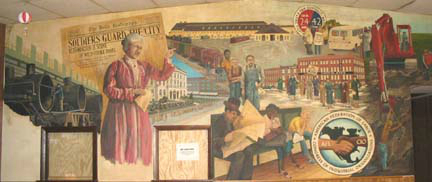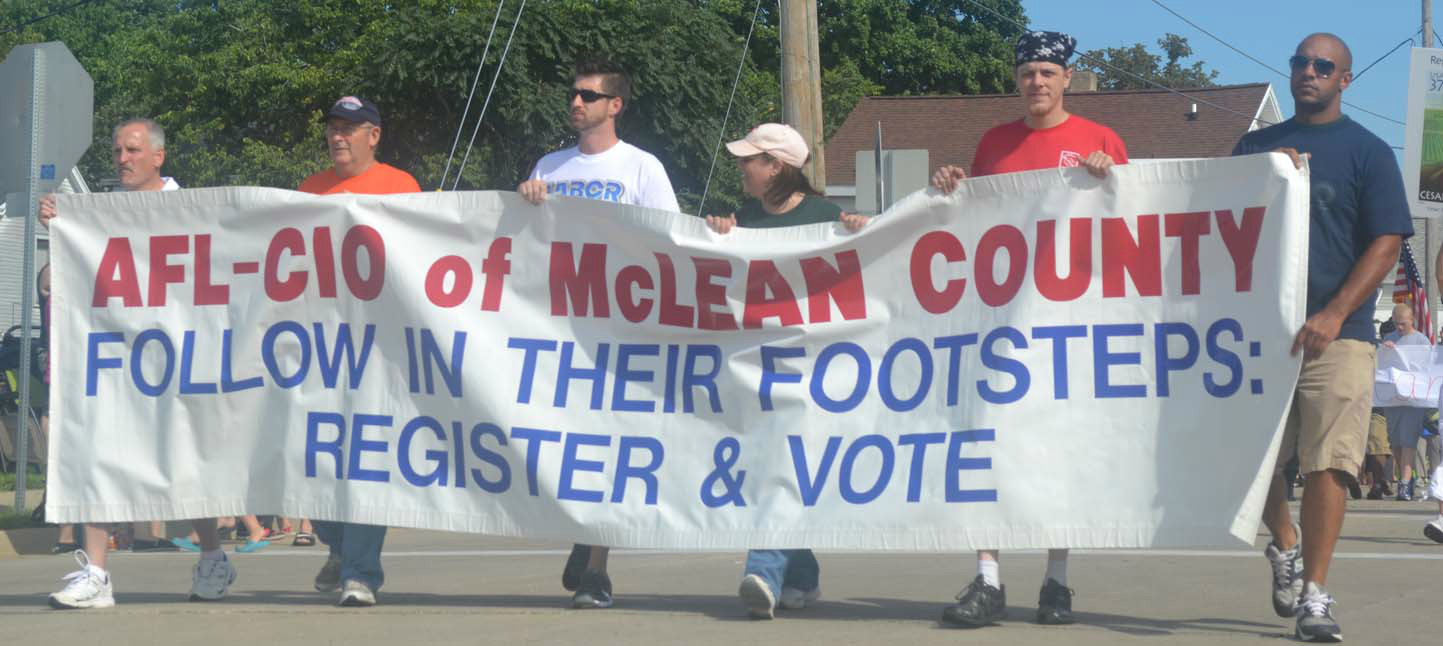|
A Great Vision: A Militant Family’s Journey through the 20th Century
Where does the inspiration come to devote one’s life and energy to improving the human condition? What makes a person willing to sacrifice their own safety and well-being to organize a union?
A compelling look across three generations is featured in A Great Vision: a Militant Family’s Journey through the 20th Century by Richard March. Traveling from an Adriatic Sea island and Lithuanian Jewish ghettoes to urban America, this book comes full circle across three generations.
The book’s central characters are Herbert and Jane Marsh, two young people radicalized by the 1930s Depression. Many jobless and angry youth gravitated to the Communist Party; the two met at a Young Communist League meeting in Chicago in 1932 and were soon married.
Organizing industrial workers was the 1930s’ epic tale, including the meat packing industry. Herbert and Jane were central figures in organizing Chicago’s stockyards into the United Packinghouse Workers. In previous years, the packers had played white against African-American workers. Through their commitment to human rights, the March family won the confidence of the workers, with Herb speaking on street corners to rally strikes and short-term walk-outs to prove worker power. More than once, assassination attempts almost took Herb’s life.
After World War II, anti-communism enveloped the U.S. The 1947 Taft-Hartley Act required union officers to swear non-allegiance to communist groups. Herb March refused and lost his union job. The family moved to Los Angeles, where Herb joined the Sheet Metal Workers’ apprenticeship school and eventually went to night school to complete a law degree, finishing his career as a labor lawyer. Jane became active in the early 1960s anti-nuclear weapon “Ban the Bomb” movement. This led the author, Richard March, to involvement in Civil Rights, anti-war and United Farm Worker support efforts.
Richard eventually returned to his roots; having learned Croatian from his immigrant mother and grand-mother, he became an anthropologist with a specialty in eastern European languages and culture.
Most touching in this book is the way the generations connect. Jane’s mother, Maria Grbac, grew up on the Adriatic island of Losinj, as Mussolini’s Italy and Croatans contested for control. The Grbac’s refused to speak Italian and their home became a resistance center. Jane’s brothers fatally went to the Soviet Union in the 1930s to join the “workers’ paradise” and disappeared in Stalin’s 1930s purges. Herb’s Jewish family immigrated to New York City, where they were immersed in garment strikes and radical politics.
This book echoes with the commitment needed to build a union and sadly reflects how the labor movement sometimes turned on its own most ardent supporters. Urban life in New York and Chicago neighborhoods echoes through tenements and flats, through to the 1960s promised land in California. It’s an engaging read because it is a real-life story of families coping with economic and political dislocation, not only surviving, but passing on values of caring and solidarity.
Reviewed by Mike Matejka
|



